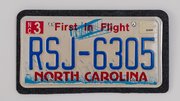News
Take steps to improve kiosk cash security
September 2, 2004
For years, one of the biggest challenges C-store operators faced was finding ways to stem employee-created loss and other shrinkage in the store.
|
C-stores are beginning to deploy kiosks that sell lottery tickets, phone cards and other specialty items that produce tremendous cash flow. But this trend raises some unique security concerns. A kiosk cassette of 1,200 notes could contain $10,000 or more. If an operator's system for controlling door access is insecure, those 1,200 notes could disappear faster than money from a register drawer.
"These happy cash machines are light weight, not safes. ATMs, although changing, are still a safe at the core. Kiosk machines are designed for selling, not cash management," said Ed McGunn, president of Corporate Safe Specialists. "It's a problem that's going to hit the kiosk business right between the eyes."
Prevent cash shrinkage
According to McGunn, operators can prevent kiosk cash shrinkage in several ways, such as using cassettes with tamper-evident mechanisms and cash acceptors that require keys.
Who handles the cash? Consider these factors when deciding who handles the cash: |
"If you look around the industry, all the existing kiosk units are locked with a type of key that usually locks a desk or cabinet - not high security key locks," McGunn said.
"The problem with cash doors that use keys is that you can't verify who the user is. The key is the master controller of that door, and if the doors can't be controlled, they will be opened. The good news is that technology advancements in cash management give retailers more options than ever.
"Accessible cash is a business problem," said McGunn. "Time-delay locks are one solution, and an effective deterrent. Another important thing to consider is limiting accessibility by cashier or manager to that door."
Cassette-door monitoring - such as by using computer-enabled bio fingerprint recognition or PIN codes for kiosk access - is another option.
Also, remotely monitoring cash via the Internet can help retailers reduce levels of pilferage experienced by other, less secure cash acceptors. If a kiosk's cassette is removed, the retailer will get an e-mail or text report. This type of notification is very important for cash management verification purposes.
"If the cassette removal was scheduled, then things are fine," said McGunn. "But if a retailer receives notification of an unscheduled removal, the system has just caught an incidence of robbery or employee theft."
 ChatGPT
ChatGPT Grok
Grok Perplexity
Perplexity Claude
Claude













